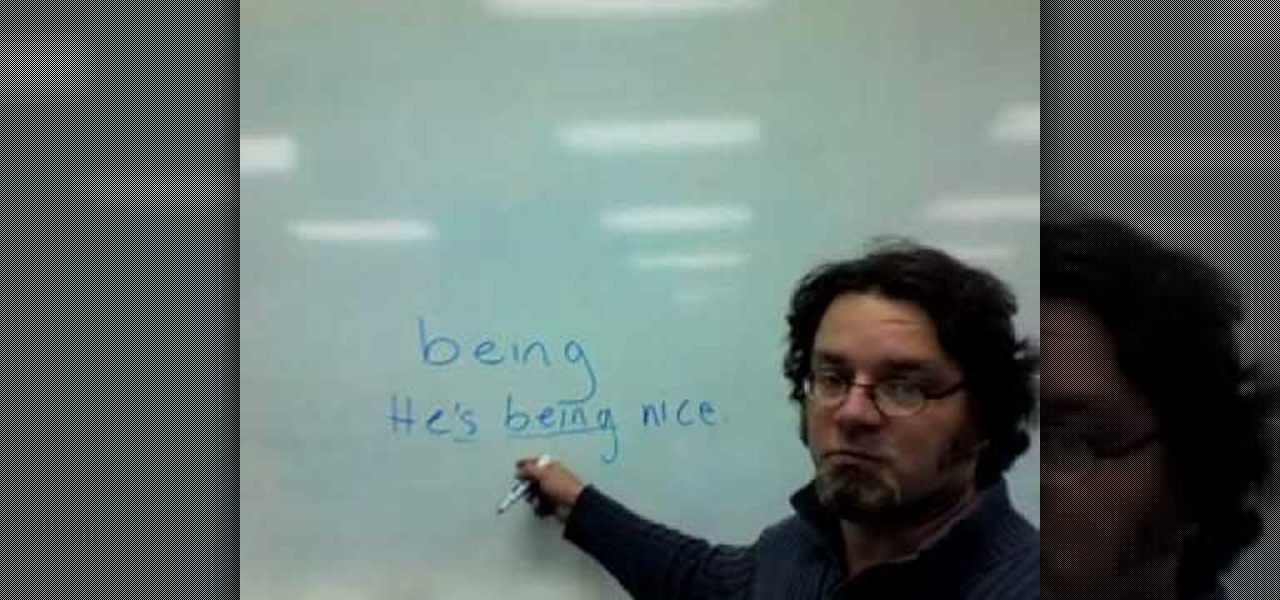Hot Language Posts


How To: Write and pronounce the Chinese word for winter
This video will teach you how you can write and pronounce the Chinese word for winter, dong.

How To: Write and pronounce the Chinese word for patience
This Chinese video will teach you how to write the Chinese word for patience, nai xin.

How To: Say the Chinese words for location and write them
This Chinese language video will teach you how to say and write the different Chinese characters used for location.

How To: Use Japanese hand gestures for counting
Use Japanese hand gestures for counting.

How To: Use Japanese hand gestures
Check out this video to learn some Japanese hand signals. Part 1 of 2 - How to Use Japanese hand gestures.

How To: Say "I Love You" in Vietnamese
Linguist Bud Brown teaches how to say "I love you" and gives tips and advice on learning Vietnamese.

How To: Learn Vietnamese commands
Linguist Bud Brown shares some insights and advice about learning Vietnamese. This video talks about how to say the imperative (command) form.

How To: Learn Vietnamese tag questions
Linguist Bud Brown share his insights on tag questions in Vietnamese. Bud first explains what are tag questions, then teaches how to form the tag question in Vietnamese. It's fun and easy, isn't it?

How To: Say "Glad to Meet You" in VIetnamese
Linguist Bud Brown shares his insights into the Vietnamese language. This video talks about how to say "I'm glad to meet you" after being introduced and different ways to say "You're Welcome" after someone says "Thank you."

How To: Learn tagalog "My and Your"
Linguist, Bud Brown shares his insights into the personal possessive forms "my" and "your". You gotta know these words and how to use them for everyday conversation for tagalog.

How To: Pronounce similar vowel sounds in English
Watch to learn how to pronounce some English words that have similar vowel sounds but different meanings like stuff - staff, hair - her, cut - caught.

How To: Introduce Yourself Using British Sign Language
Paula Cox from Sunny Signers shows us how to introduce yourself in British Sign Language. Learn how to say your name, age, and where you live in sign language through this simple video. Introduce Yourself Using British Sign Language.
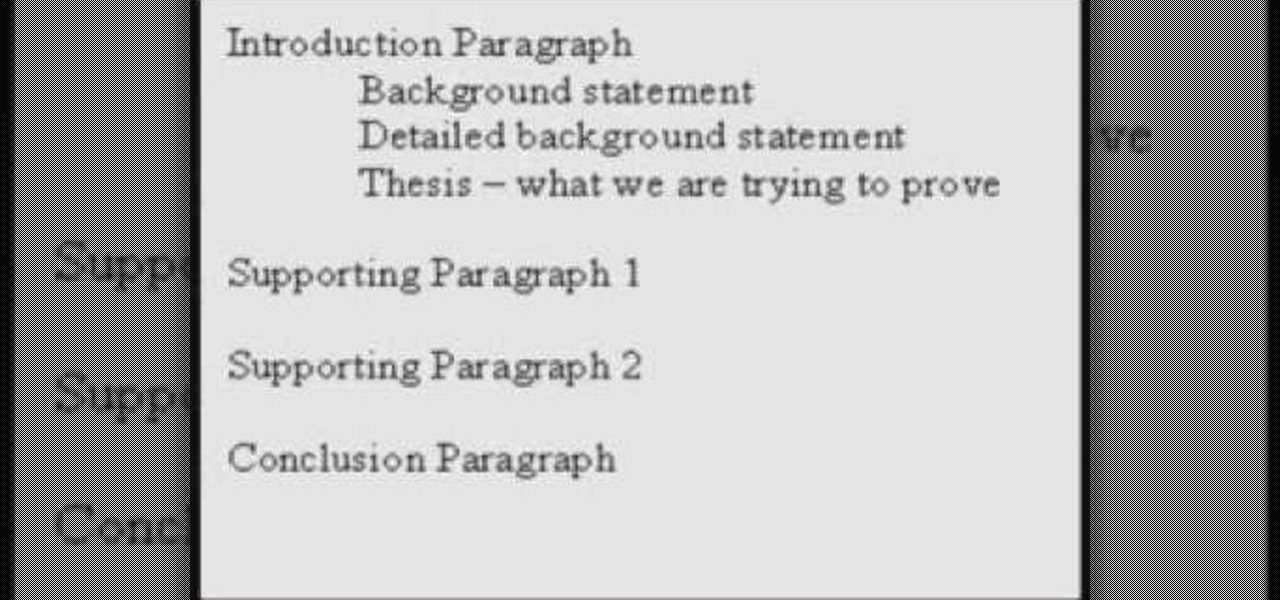
How To: Write an argument essay outline
Here is a brief outline of how to organize an effective argument essay. This structure can be adapted to your needs and follows IELTS essay writing guidelines.

How To: Pronounce words in German
German phonemes pronounced, each with example words. I tried to cover all letters and letter combinations which learners of the German language need to pay attention to.
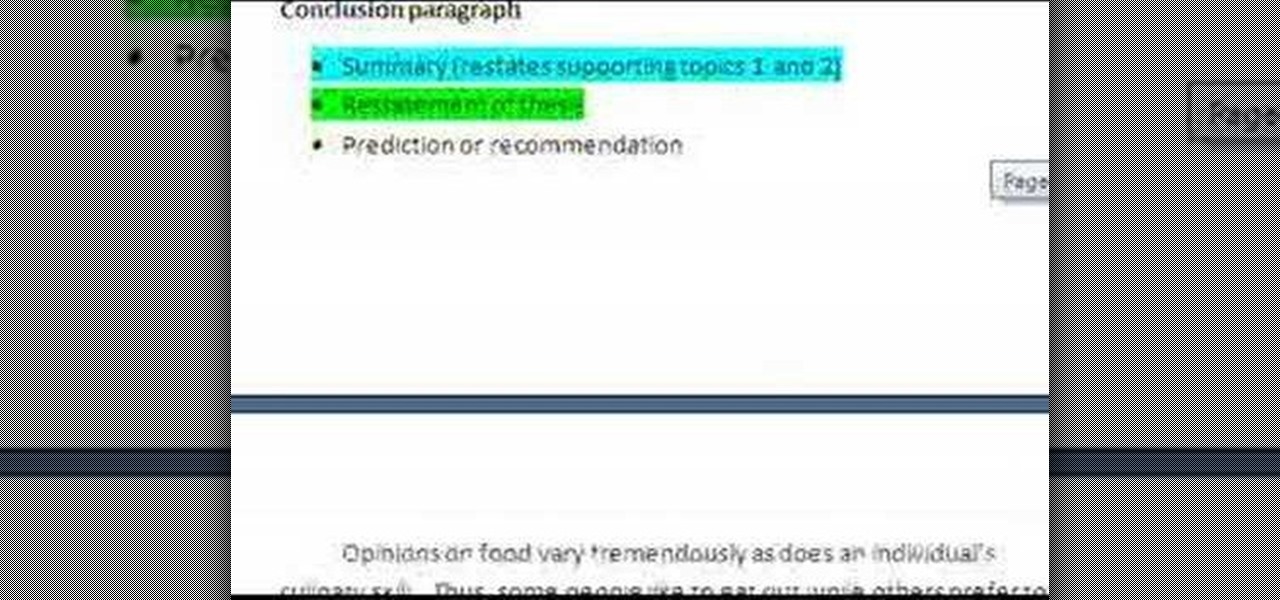
How To: Link an essay's paragraphs together
This brief video outlines how to keep the paragraphs of your IELTS argument essay linked.
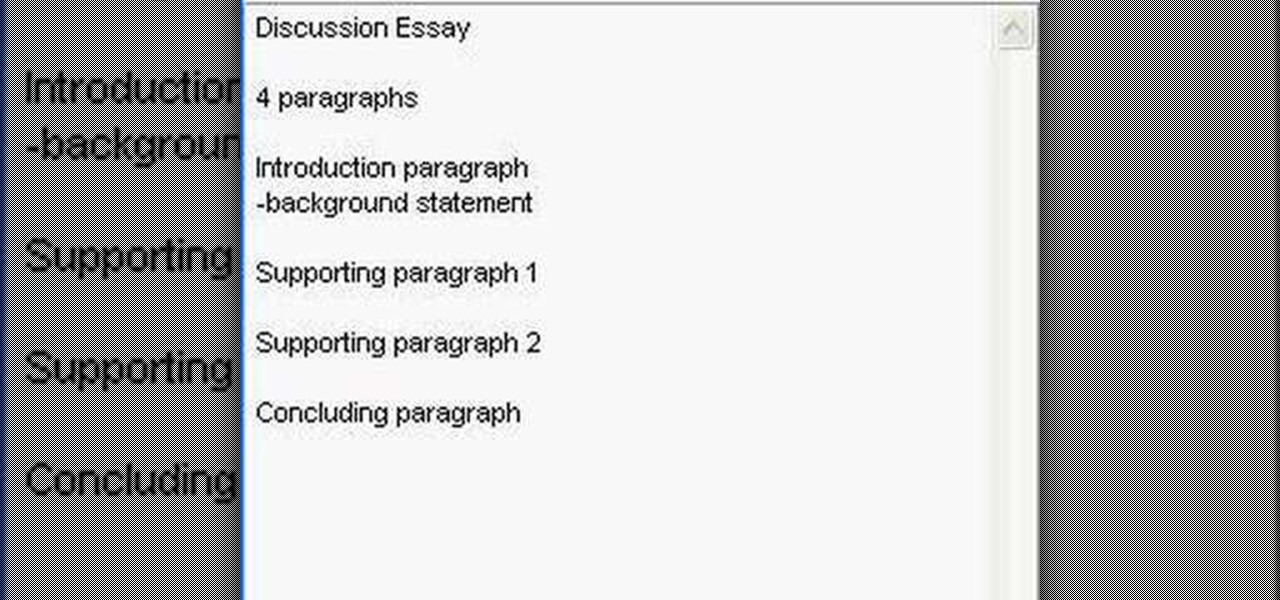
How To: Write a discussion essay outline
This two part video is a short lesson outlining the basics of writing a discussion essay. It is about 13 minutes long in total.

How To: Write a discussion essay
In this video lesson, we write a discussion essay together following IELTS essay writing guidelines. The final essay is roughly 280 words in length.

How To: Speak to a beggar in Cantonese
This video lesson is designed to help you learn how to speak with a beggar in Cantonese.

How To: Say basic phrases in Portuguese
Learn how to say basic phrases in Portuguese with this two part video. Part 1 of 2 - How to Say basic phrases in Portuguese.

How To: Use the phrase "had better" in English
An English teacher explains how to use "had better." This is an idiomatic modal which closely resembles "should," but it's a little stronger than "should."

How To: Use the past perfect tense in English
An English teacher shows how to make the past perfect tense: had + past participle. The past perfect shows that something happened before another past event.
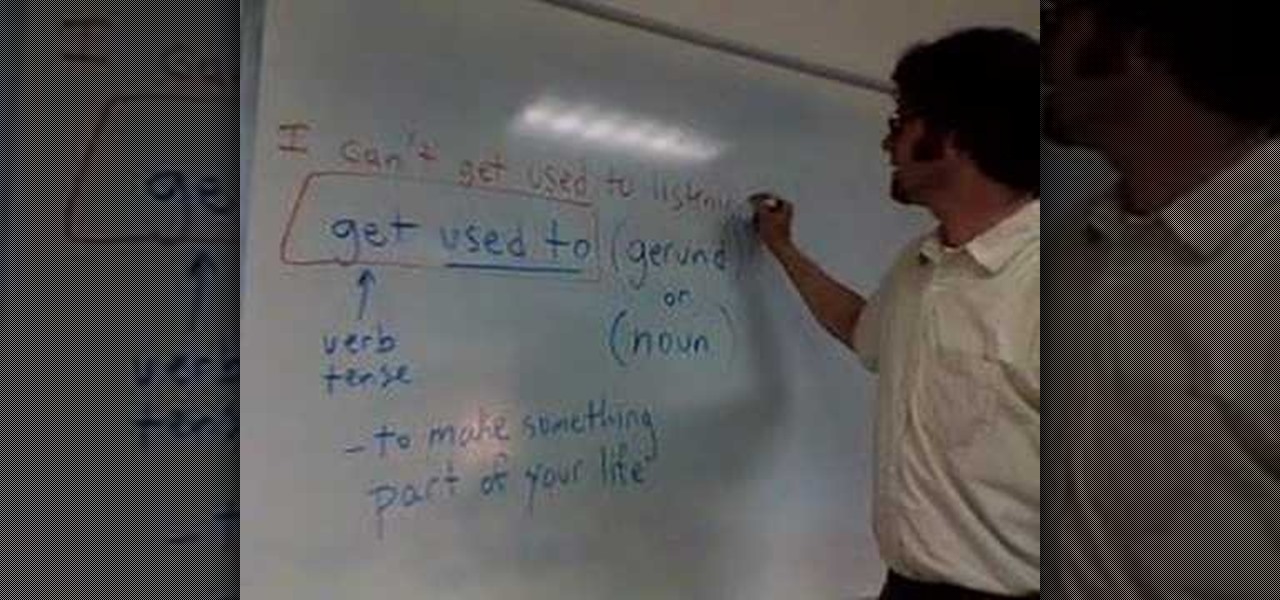
How To: Use the phrase "get used to" in English
Learn how to use the phrase "get used to" in English. "Get used to" expresses that you have adapted or become accustomed to something you may or may not like. At first you don't like something, then you "get used to it."
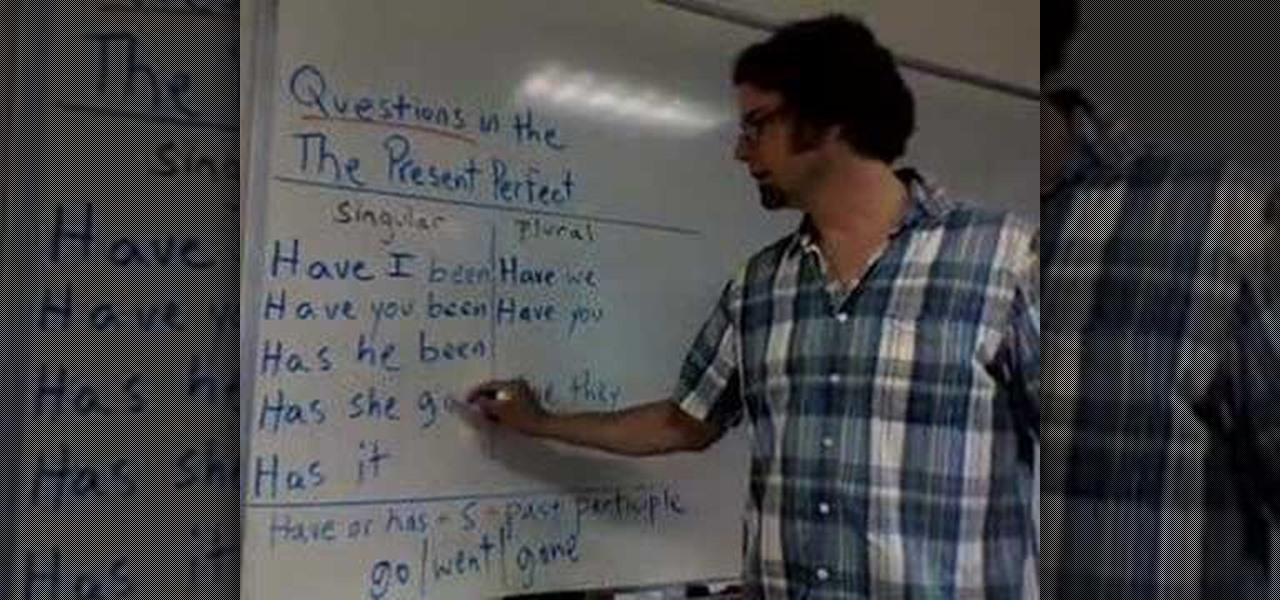
How To: Ask questions in the present perfect tense in English
An English teacher shows how to make the present perfect tense in the form of a question.

How To: Use the present perfect tense
In this video an English teacher explains how to make the present perfect tense.
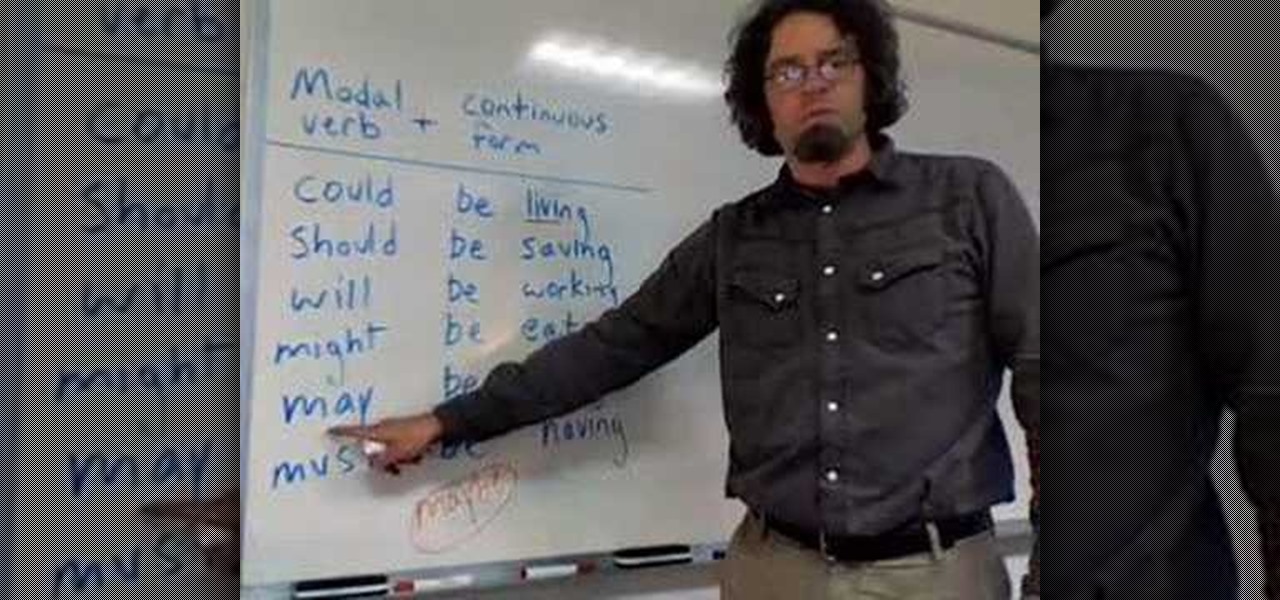
How To: Use the modal verb and continuous form in English
Some modal verbs can be put in front of the continuous form to express some present action that is or isn't happening. To make the past tense for each, use "have been" instead of "be."
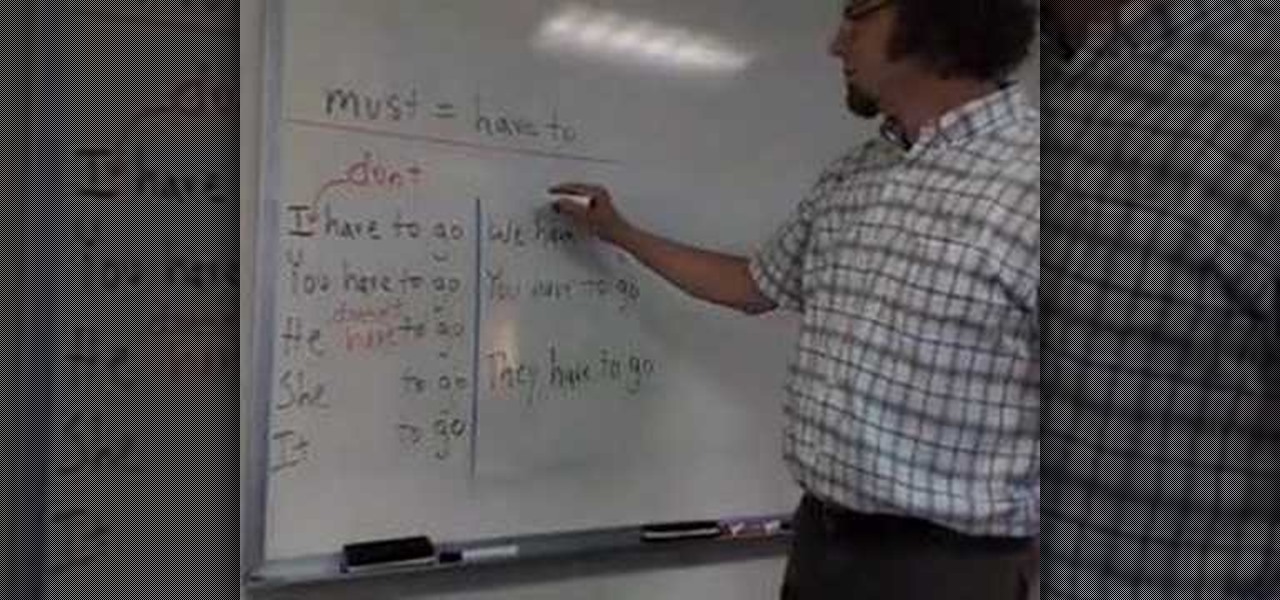
How To: Use "must" in English
Learn how to use the modal verb "must" in English. The modal verb "must" is almost the same as using "have to," but often "have to" sounds better in spoken English.

How To: Use "(be) able to + main verb" in English
An English teacher shows how to use "be" able to" with modal verbs. Remember that "(be) able to" is almost the same as the modal verb "can."
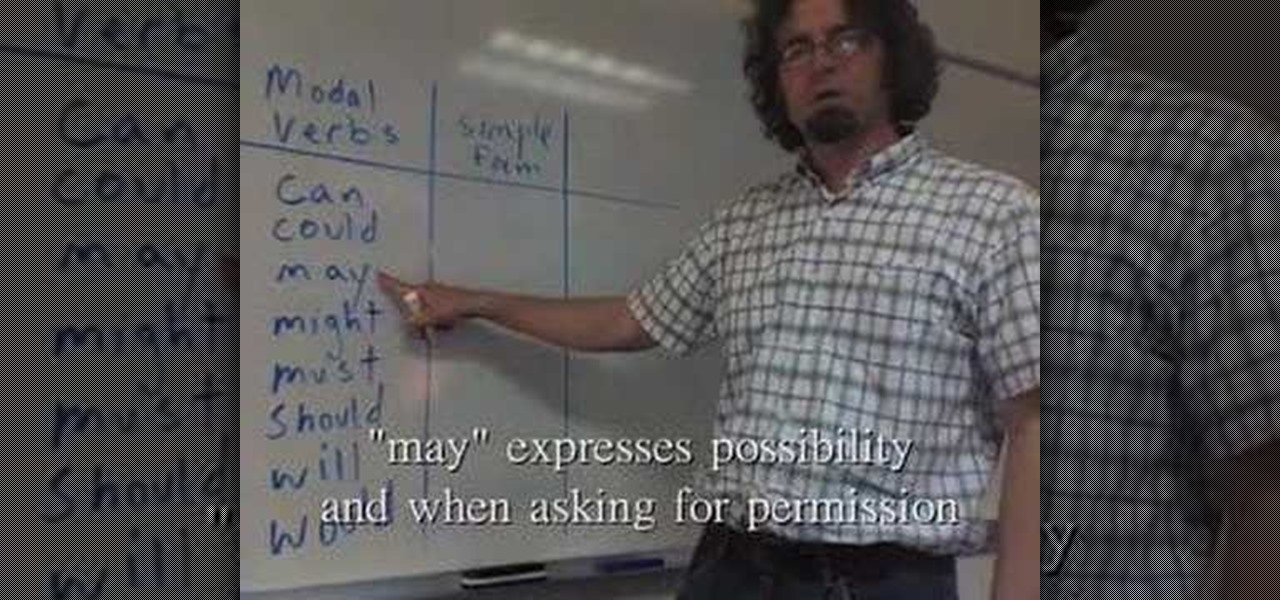
How To: Use modal verbs in English
An American English teacher lists modal verbs and briefly explains their use.
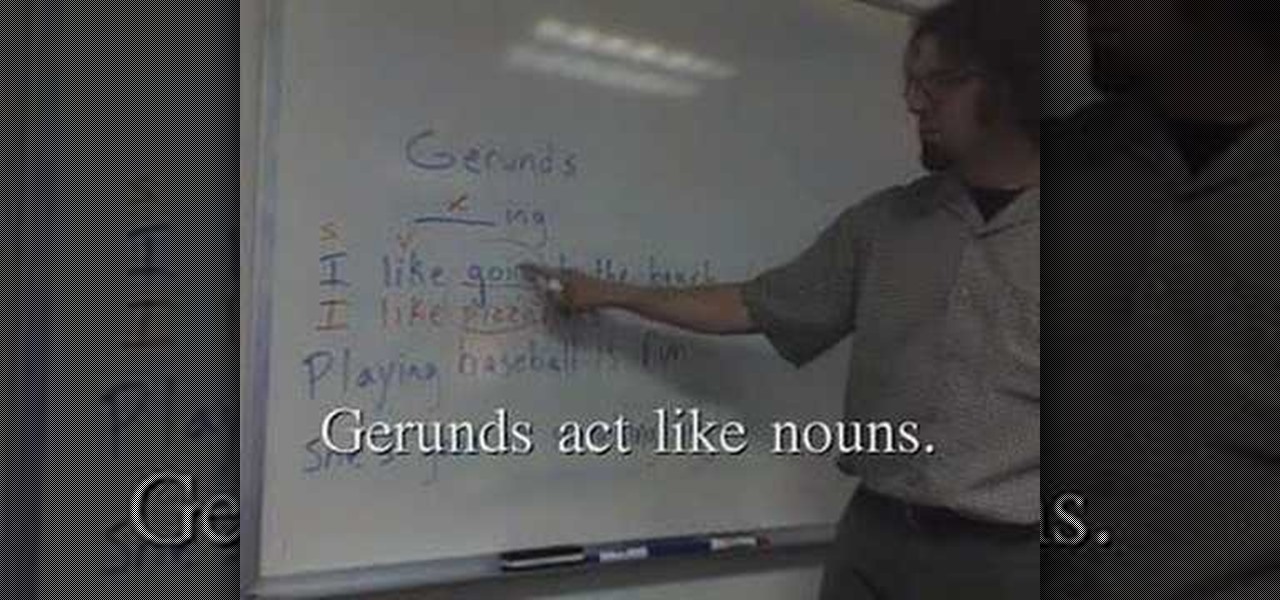
How To: Use gerunds in English
A teacher explains what gerunds look like and how they might be used in English.
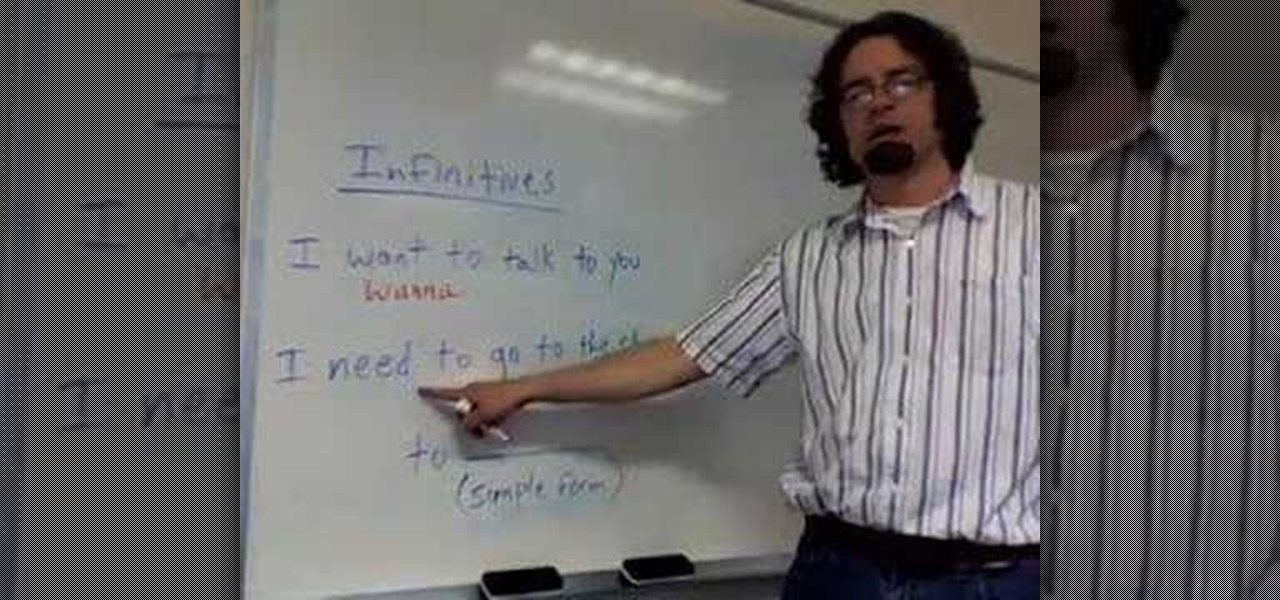
How To: Use infinitives in English
An American English teacher explains how infinitives are used.

How To: Use "either" and "neither" in English
An English teacher shows how to use "either" and "neither" to make negative statements. These words are the opposite of "so" and "too."

How To: Use helping verbs and main verbs in English
This short video shows how helping verbs are used with main verbs in English.
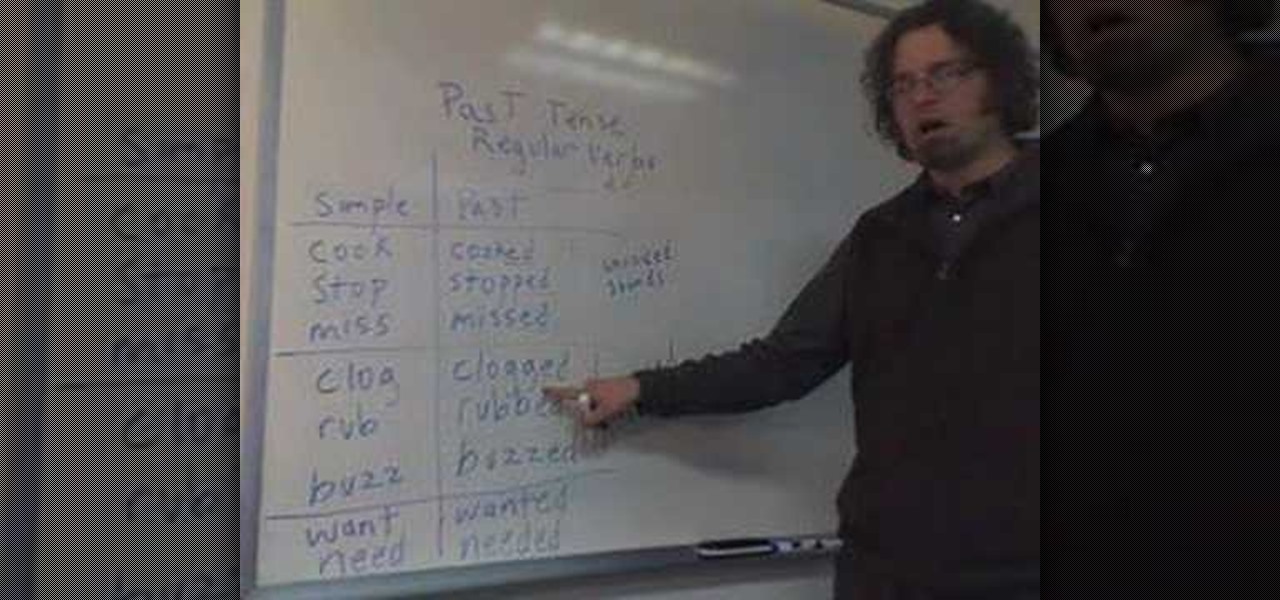
How To: Pronounce regular verbs in the past tense in English
This video shows to pronounce regular verbs in the past tense in English.

How To: Use irregular verbs in English
This video shows irregular verbs in the simple form, the past tense, and as past participles. I hope this helps my students remember how these verbs change. It might also help with pronunciation.
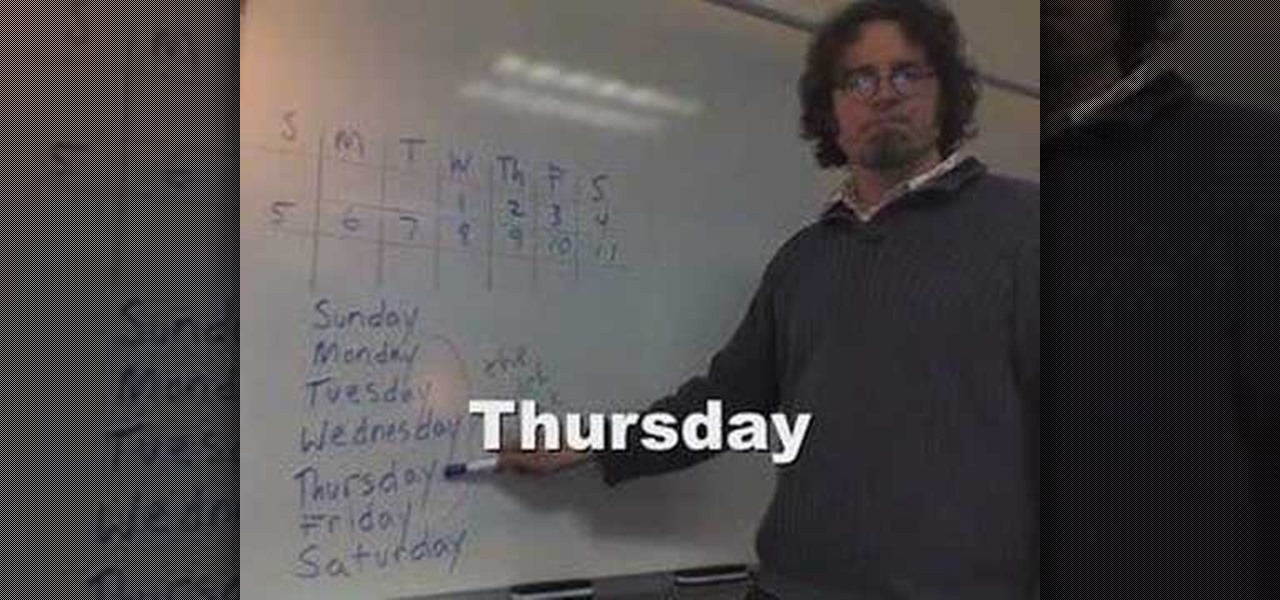
How To: Say the days of the week in English
Learn how to say the days of the week in English. Sunday, Monday, Tuesday, Wednesday, Thursday, Friday and Saturday are the days of the week.
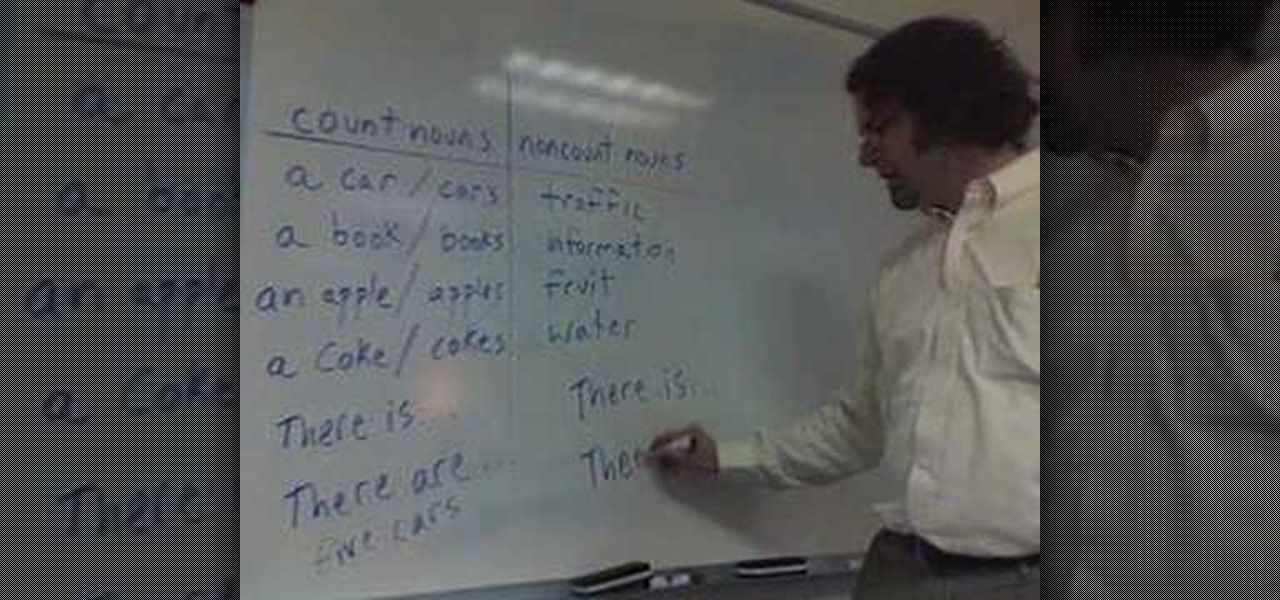
How To: Differentiate between count & noncount noun in English
In this video a teacher shows the difference between count and noncount nouns. This is very important for good American English grammar.

How To: Use possessive pronouns & adjectives in English
In this video a teacher shows the difference between possessive adjectives and possessive pronouns.

How To: Use possessive adjectives in English
In this video a teacher shows how to use possessive adjectives before a noun in English.

How To: Differentiate between subject & object pronouns
In this video an American English teacher shows the difference between subject and object pronouns.

How To: Construct past tense yes/no questions in English
Learn how to construct yes or no questions in the past tense in English. The helping verb "did" and the simple form of the main verb make a question.





